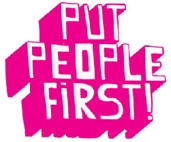|
 |
|
 |
Peter Drucker, The Practice of Management (1954) Drucker (a German- born American) is the father of modern management (pictured right). He has written many outstanding books, but this book and Management: Tasks, Responsibilities, Practices are his most influential. More than any other books they brought to people’s attention the importance of management. He once said that his life’s work centred on balancing continuity and change in organizations He died in 2005.
See also... Peter Drucker in the Management Gurus section.
Book summary
What is management? Management is a “practice” that must be evaluated on how well it improves business performance.
How management can improve business performance
1. Maximize the effectiveness of resources Resources are:
They must be used to create as many customers as possible.
2. Treat employees as human beings So managers must deliver what they want:
3. Be led by a customer driven business purpose The purpose of a business is “to create a customer”. If it is does this well, it will make a profit. So profit is the result of business success, not its cause. Because “the customer is the foundation of a business and keeps it in existence”, a business has only two basic functions:
a) marketing Focusing every organizational activity on creating customers and selling what they want.
b) innovation Providing new and better ways to improve customer satisfaction in every organizational activity - for example:
Marketing and innovation are creative, so: “managing a business must always be entrepreneurial in character”.
4. Define your business Any organization must decide what business it is in. This is determined by customers and what they want. Key questions are:
5. Be socially responsible Management must:
But a business’s first responsibility is to ensure its survival by making a
profit. It must make enough profit to:
6. Management by objectives The best way to run an organization is “management by objectives”. This means managers must be asked to achieve short and long term objectives in eight key areas:
a) market standing Customer satisfaction (and loyalty) through new or existing products.
b) innovation New products and improvements in organizational activities and processes.
c) productivity (utilizing resources to satisfy customers).
d) physical and financial resources
e) profitability Profits made from customer satisfaction and innovation.
f) manager performance and development (through coaching, training and education). g) worker performance and attitude (employee productivity)
h) public (i.e. social) responsibility The organization's contribution to society - see point 5 These objectives and activities must be effectively balanced and co-ordinated (via the organization structure), to create as many customers as possible. Therefore, vital are:
The best managers are driven by a vision of what customers will want . They are like the stone cutter who says
7. Avoid “safe mediocrity” Every organization faces the danger of “safe mediocrity”. This is poor performance resulting from:
To avoid safe mediocrity, managers must be given:
Key quotes on customers The customer is the foundation of a business and keeps it in existence. It is the customer who determines what a business is.
Key quotes on objectives and vision There is only one valid definition of business purpose: to create a customer. Profit is not a cause. It is the result - the result of performance of the business in marketing, innovation and productivity.
Key quote on marketing Marketing... is the whole business seen... from the customer’s point of view.
Key quote on management The ultimate test of management is business performance.
Key quote on business ethics It is vision and moral responsibility that, in the final analysis, define the manager.
Key quote on business success Managing a business always comes back to the human element – no matter how sound the business economics, how careful the analysis, how good the tools.
Key quote on corporate culture The enterprise is a community of human beings. Its performance is the performance of human beings. And a human community must be founded on common beliefs, must symbolize its cohesion in common principles.
Key quotes on motivation What we need is to replace the externally imposed spur of fear with an internal self-motivation for performance Self-control means stronger motivation.
|
|
|
||
|
|
|
||
|
||
| Copyright © wisdomtowin.com All Rights Reserved | ||
|














